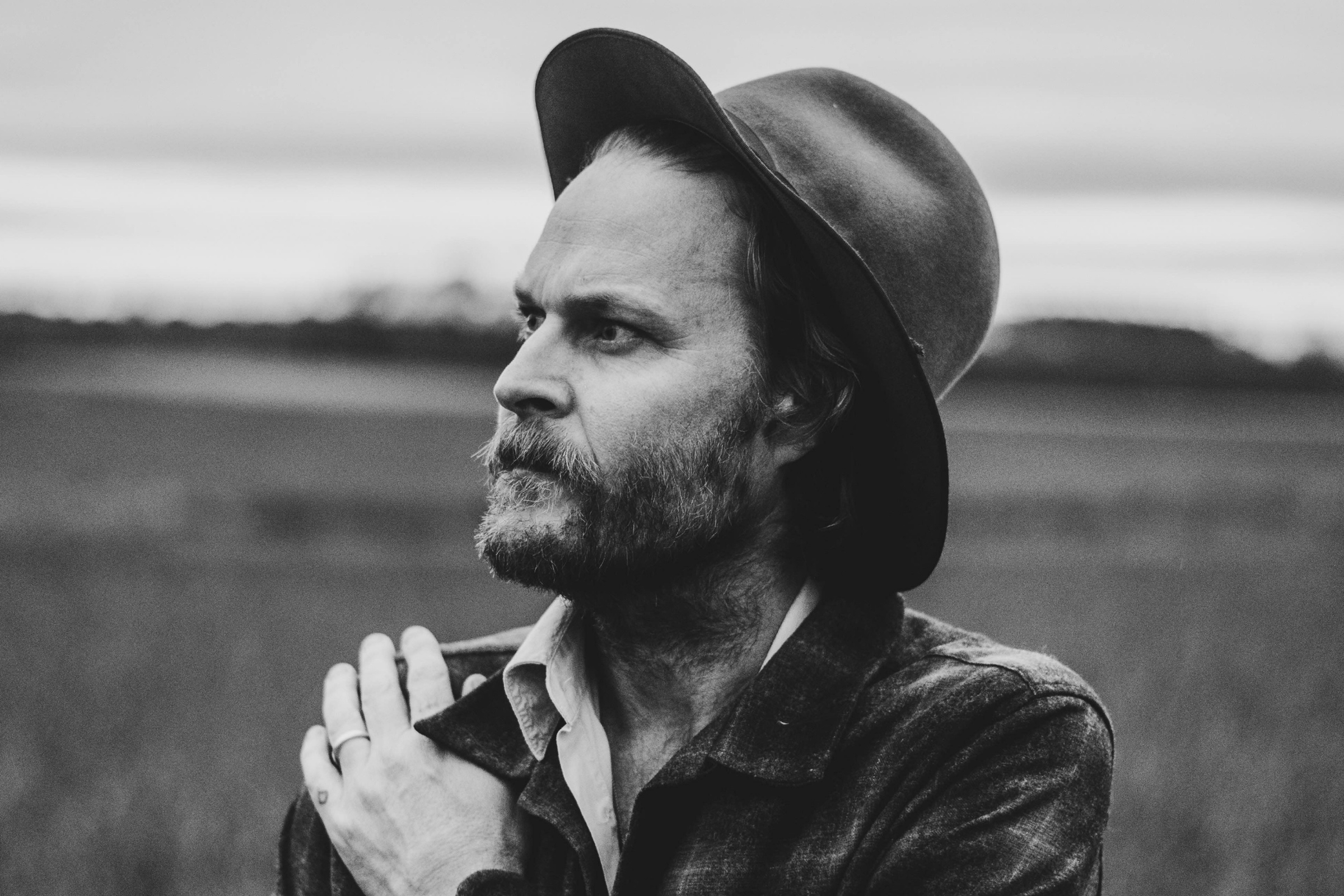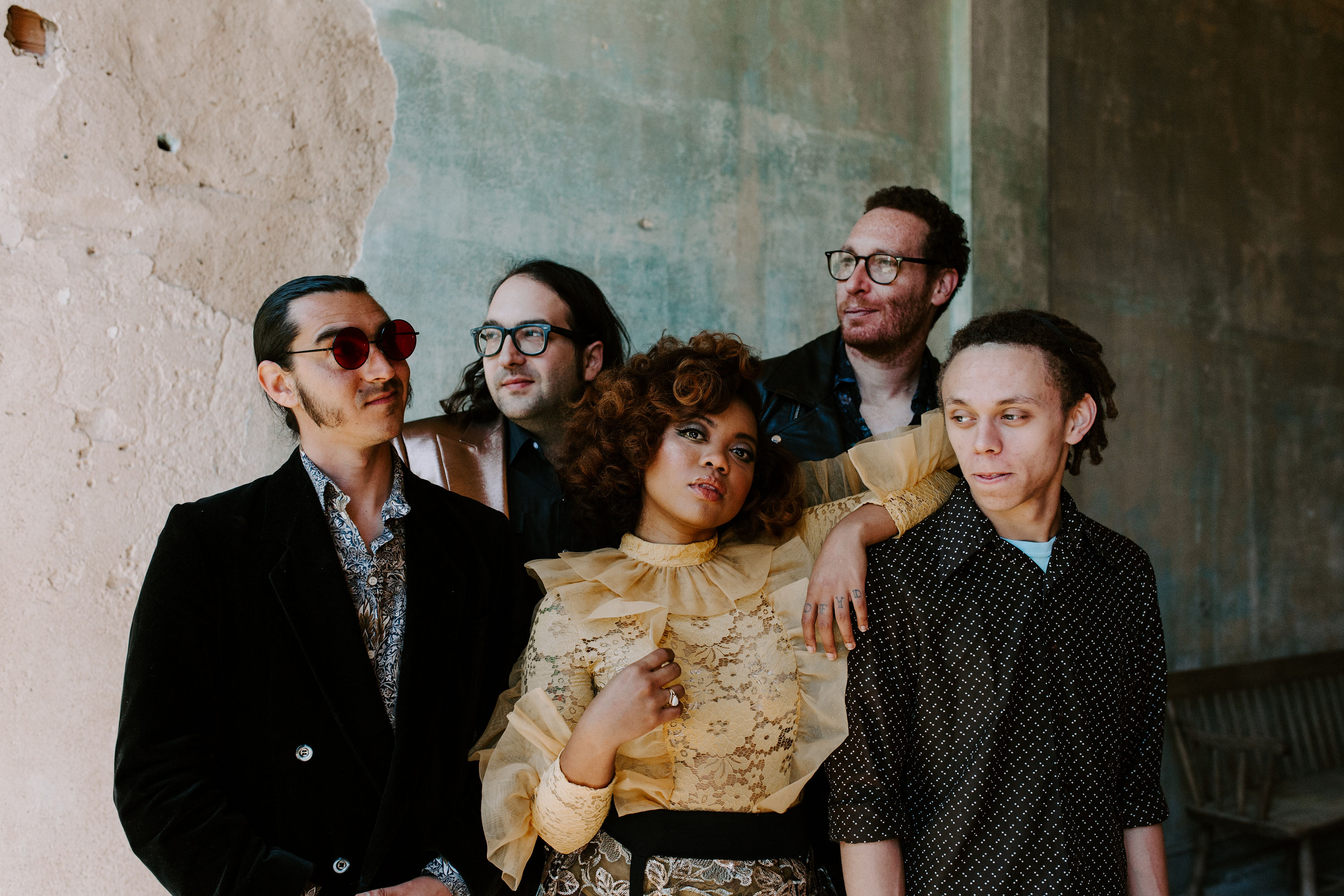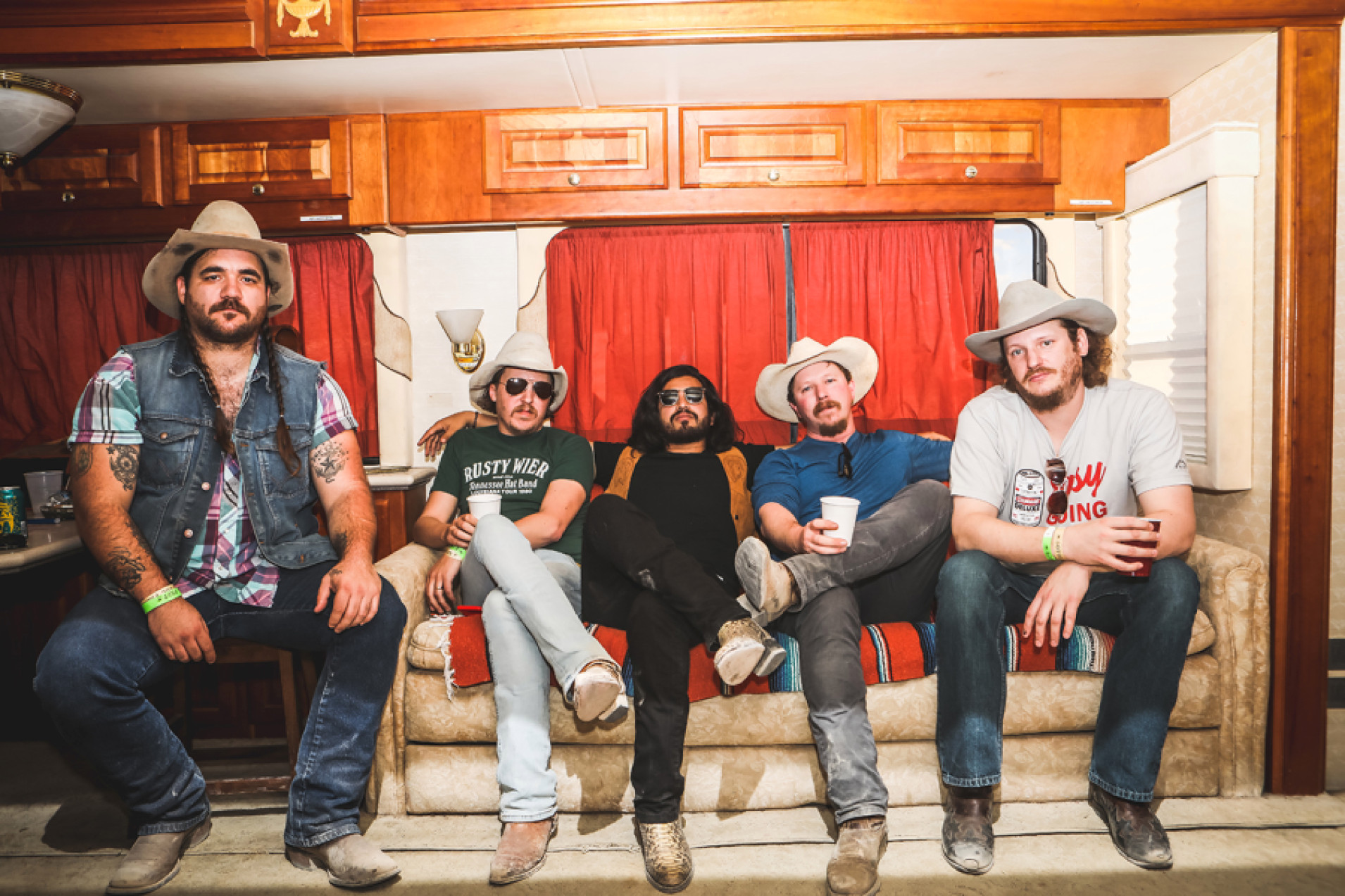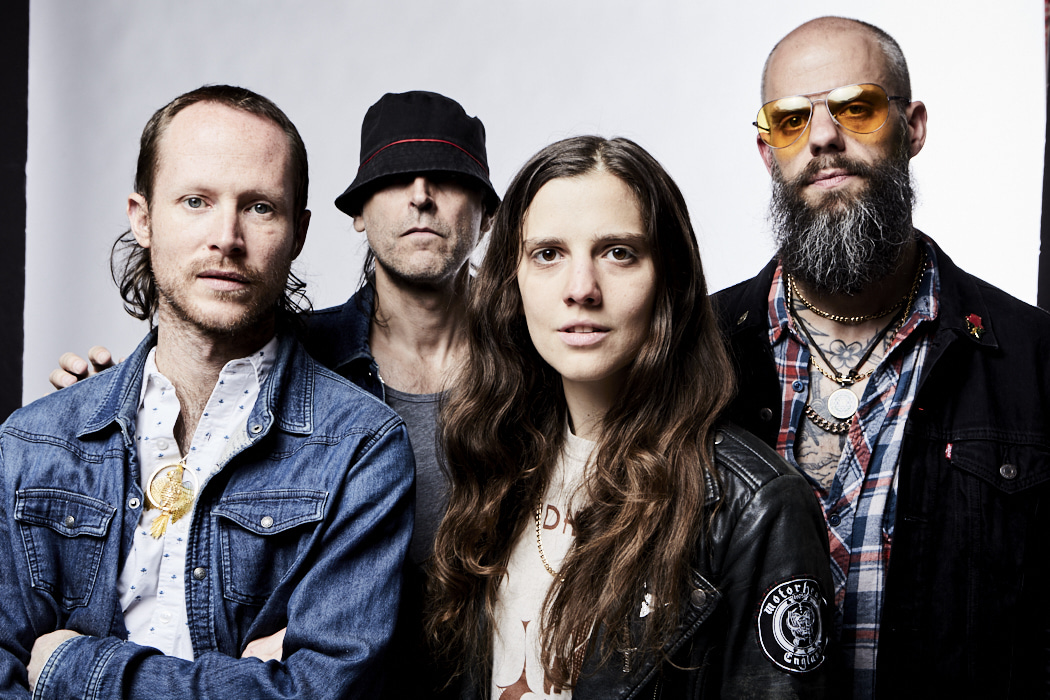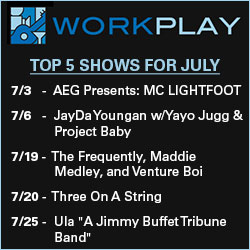Luke Dick talks about his contribution to the Album of the Year, Republican Hair’s stop at The Nick on March 8
Republican Hair is the rock project of Nashville songwriter Luke Dick. The 39-year-old has spent a career in Nashville penning hits for artists like Eric Church, Miranda Lambert and Dierks Bentley. “Burning Man” recently reached the top of the country chart for Bentley.
Last month, Dick achieved a new feat – he was part of the Grammy’s Album of the Year. “Velvet Elvis” was a track that Dick co-wrote with Kacey Musgraves and Natalie Hemby; a surreal experience for everyone involved where vision was never compromised for traditional Nashville radio play.
Before making his first visit to Birmingham at The Nick – a venue that Dick has said he has long hoped to play – he talked about blaming it all on his roots, replanting them in Nashville and the small role he played in 2018’s best album.
What part of Oklahoma did you grow up in?
Southwestern Oklahoma; a little town called Minco. And then I graduated from Yukon, which is the hometown of Garth Brooks. It’s painted on the water tower and everything. I went to school on Garth Brooks Boulevard.
Did that have any influence on your career in country when you grew up or is that why you got into rock and roll and punk stuff? Rebelling against Yukon?
I was into rock music by the time I moved to Yukon. I thought that Garth Brooks was ruining my street cred. When you’re trying to be in rock bands and you go to school on Garth Brooks Boulevard, it’s a hard sell, you know?
What did some of those earlier bands sound like? It was a little more punk rock, right?
Yeah, man. It wasn’t even punk; it was more like prog rock. The very first rock show that I ever played, we did mostly cover songs. The first song that we ever opened with was Smashing Pumpkins’ “Cherub Rock.” Then we moved into some Tool covers; those were the bands that we siphoned input from.
At what point did you decide that moving to Nashville was the right move for your career?
I was in grad school and I had an alt-country band and this bass player said, “You should go to Nashville and try to write country music.” He had a connection.
I said, “What is publishing?”
He said, “Well, they pay you to write songs.”
I’d just take anything out of Oklahoma. Anything that pays me to do music? Yes. Wherever it is, I’ll do it. On the way out, I was like, “I like country music.” And I put in some Hank Williams and thought, “This is country music. This is cool. Steel guitar.” My dad listened to Hank Jr., and I liked Hank Jr. Then I turned it on country radio on the way out to Nashville, and then I sort of hit a brick wall because I saw what I was up against in terms of what people were writing about. I didn’t like much of it. There were a few songs on the radio that I did like; by the time I got to Nashville, I’d heard two or three songs where I thought, “That’s pretty good.” One was a song by Dennis Linde called “Talkin’ Song Repair Blues” by Alan Jackson. It’s this insane bit of rhyming that’s so clever, and the story’s so clever. Dennis Linde was the saving grace for me when I was on the way in. This isn’t just something that I’m just doing to do; there’s an interesting corner here that’s happening, writing-wise, creatively, and I thought that I could really have fun. And also flex a muscle that I hadn’t flexed yet.
Is the writing thing for you a job or do you feel like you’re able to be creative on your own terms?
I’ll tell you this: I write at least three days a week, whether that’s for me or for somebody else or just because there’s another writer coming over to try to write something. By law of average, most of the time, the song is going to be a C. You’re not going to write anything awesome. So you get in the middle of that C and you think, “Well, let’s try to make the C the best C we can make it.” Or maybe you’re feeling it. I’ve had luck with songs that I actually like to think that I sat down and there was an expression of some sort that I actually wanted to express.
The thing about different artists is that they have different things that they want to say, so another artist will come over and kind of have to figure out where our brains intersect in order to write something that we both like and are into. Or I’m helping draw their character out or create another character or whatever it is; there’s some point in my creative life where you can look at your creative gifts as being of service to other people, too. And that’s fun, so long as you like the people that you’re working with.
The truth is that every day is different. Some days, you’re wacked out on a Republican Hair song and I don’t know where it’s going and I’m chasing it down. And some days, I have a pretty refined idea of what I want to do and it’s a concept song that belongs in country. That’s what I like about Shel Silverstein; he’d have a concept that would fit into country and something else would be a little too bawdy or whatever, so he’d keep it for his own poetry book or something.
Do you prefer the results you get when collaborating with other writers or would you prefer to work on your own?
I think everyone should learn how to write on their own. It’s good to dig around in your own brain and figure out what your impulse is; at least in my case, I’ve really enjoyed that. Digging around and finding out what your own intuitions are. In terms of the day to day, sometimes, I will earmark ideas for my friends to write with me. Because having your people – having creative people that you trust their instincts and you’re able to work with them – oftentimes, there are lines in a lot of my songs, or pieces in some of them that never would have happened without my friends. And they’re really good lines. Maybe I had the idea; maybe I had the chorus or whatever, then somebody helps you launch it.
It’s also – your friends coming over can be the impetus to get something done. Everyone is cracking the whip on each other to figure it out and get it done. And maybe you get it done and maybe you don’t, but you’re going to try.
What was your reaction to Kacey’s win at the Grammys?
When I moved to town, I loved what Kacey was doing and to be pulled into her creative circle in even the slightest bit was – I don’t know if “appreciative” is the right word, but I was excited to get to work with her because I consider her a visionary and I still consider her a visionary. Then to see her team up with Ian [Fitchuck, producer of Golden Hour], who I had met at a bar, and I knew Daniel [Tashian, producer of Golden Hour] as well – to see her pivot and follow her intuition and watching that intuition turn into a record and then to watch that record catch so much attention and then to watch the record win Album of the Year – I added a song to it, so in that regard, I was a part of it, but I’m playing triangle in a big, beautiful orchestra. Kacey’s leading, and I was happy to play the triangle. And I’ll play the triangle any time Kacey wants me to; I think she’s awesome. And I love Daniel and Ian, too, and I think that collaboration – they’re composing with her, and it’s a really wonderful matchup. To see somebody like Kacey – I was just excited for them because it was a risk all the way around. It was a creative risk; she could have chosen producers that she knew or that were attached to some kind of fame and success – but she just felt good and had a good feeling about those guys. And those guys have this musical love and spirit and a different kind of outlook on music, so they were able to collaborate and create something that was really great. Then, it got its’ moment in the sun. And everybody liked it.
Do you think that taking that creative risk will challenge the rest of Nashville and that other people will take bigger creative risks going forward?
I don’t know; it’s hard for me to speak out of turn. I just hope that she keeps being creative and being creatively fueled. The industry is going to do what it’s going to do and creative people are going to do what they’re going to do and it’s hard to see how it’s ever going to line up. It’s kind of a revolving door – every music industry – I happen to live in Nashville, so you see people get signed and people get dropped. They’re stars now and then they’re not the next day. Then you see someone so creatively invigorated; I just hope that she stays creatively invigorated and doing something that means something to somebody. Hopefully it finds some commercial place, and obviously, she didn’t do it in the traditional, Nashville way to have that record find its’ home in the world. But she found it. She and her team found a way that people could find that record, and I’m glad that she and her team and her people were able to do that. It was a pretty cool triumph.
After your prog rock and punk rock beginnings and your journey through writing country music, how did you land on what Republican Hair would sound like?
It was actually simple. I just said that I want something with two guitars. I had been making all of these lush recordings, and I said, “I just want two guitars to be doing something interesting melodically.” And it doesn’t have to be complicated. It just has to be interesting melodically or interesting to me, at least. That’s all anybody has; their own intuitions to go on. The first record was all about documenting the interesting, tiny parts and then filling it in with lyrics and how the song makes me feel. And how the song makes me feel helps turn it into this world that was there all along, I guess.
Initially, it was simple. Let’s find a way to make two guitars sound great. That’s such a boring story. [laughs] But that’s how it was! I was just listening to two guitars and thinking, “The guitars sound so [expletive] awesome.” It’s not that it’s simple, it’s that it’s understandable. Two guitars sound great and then there’s big, fat choruses happening the way that they happen. That was part of the goal.
And there was the glam element that you talked about – maybe T-Rex – I’d even lump Devo into that; sort of a post-glam thing or whatever. I want to be able to sing it after a time or two. I want a lyric that I can believe in and I want a lyric that I can sing after the first time where I don’t have to tell myself the melody again. I don’t know if that’s out of laziness or out of just being a sucker for a hook.
Republican Hair comes to The Nick on Friday, March 8. Doors open at 9 p.m. and the show begins at 10 p.m. Terry Ohms and Resort Realism are also on the bill. Admission is $8 in advance and $10 at the door.



